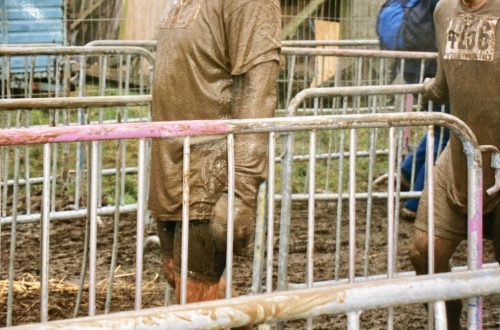How Resentment Fuels Addiction: How to Overcome It
Resentment is the number one offender, wreaking havoc on the lives of those struggling with substance use and addictive behaviors.
When you let myself get stuck in resentment, the chances of recovering from addiction diminish significantly.
Resentment often feels like a wave of anger, bitterness, or dissatisfaction when we believe we’ve been wronged, treated unfairly, or disrespected. This emotion usually stems from a perceived injustice or insult, sometimes something as small as a look, and it has a way of lingering, festering over time. The more we hold onto it, the more it fuels negative feelings toward the person or situation we believe caused my pain. Recognizing this pattern is the first step toward breaking free from its grip.
When resentment is tied to addiction, it can significantly influence both the development and persistence of addictive behaviours. Resentment becomes a potent emotional trigger that propels my cycle of self-destructive patterns. Confronting and resolving it is vital to my recovery journey.
The Emotional Trigger: Resentment and Addiction
Unresolved Emotional Tension
Resentment often manifests as unresolved emotional tension, quietly festering beneath the surface. For some, the instinct is to numb or escape these uncomfortable feelings through substance use or addictive behaviors, driven by the mistaken hope of finding quick relief.
Temporary Relief, Long-Term Damage
Substances like drugs and alcohol, or actions like gambling, over eating or other addictive behaviors, may offer a fleeting sense of relief. However, this escape is only temporary. The root issue, “resentment” remains unaddressed, continuing to fuel emotional distress and perpetuating the cycle of self-destruction.
The Vicious Cycle of Self-Medication
- Self-Medicating Emotional Distress
When I leave my resentments unchecked, they keep me in a state of emotional turmoil. I might turn repeatedly to substances or destructive habits to cope, creating a harmful cycle. - Escaping the Root Cause
Every time I use substances to dodge my feelings, I delay facing the real source of my resentment. This cycle makes it even harder for me to break free from addiction.
Isolation and Blame
- Pointing Fingers
Resentment often leads to blaming others or external factors. This mindset can leave a person feeling isolated; believing nobody truly understands their struggles or has their best interests at heart.
I remember heading out for a morning drink with some mates. By the time I was on my second or third round, I caught the barman giving me ‘the look‘. We’d had words a few weeks earlier, so I immediately knew where this was going or at least I thought I did. In my mind, the whole exchange was already playing out: he’d say something snide, I’d fire back with a sharp reply, and then he’d escalate. I had my response locked and loaded. Before he even opened his mouth, my resentment boiled over, and I threw a punch that knocked him to the floor. The crazy part? Not a single word passed between us. The entire scenario had played out in my head.
Today, I recognize that resentment was eating me up on the inside, in recovery I feel the shame.
Deepening Isolation
Once slipped into addiction, we tend to isolate ourselves further, both physically and emotionally. Making it more difficult to address the real issues driving the resentment.
Resentment’s Role in Recovery
- Crucial to Healing
In most addiction recovery programs (including 12-step groups like Alcoholics Anonymous), tackling resentment is crucial for progress. - Steps Toward Resolution
- Moral Inventory: Conduct a more thorough and honest self-examination to identify any lingering and festering resentments.
- Making Amends: Just saying sorry is not enough. Learn to acknowledge your part in conflicts and seek solutions, which helps to release long-held bitterness.
Spiritual and Emotional Healing
- Barrier to Growth
Resentment blocks any emotional and spiritual well-being. You can’t move forward if still holding on to anger and bitterness. - Forgiveness and Coping Skills
Letting go of resentment often requires practicing forgiveness—not only for others but also for yourself. This process includes finding healthier and more constructive ways to cope with emotional pain. Additionally, focusing on helping and supporting others can be a powerful step toward healing and personal growth.
I struggled during my first two Christmases in recovery, with no family or close friends to share them with. By my third Christmas, I decided to volunteer with Crisis for Christmas, and it became a tradition for many years. I continued helping until my daughter was born, at which point I needed to focus on prioritizing her needs.
It ended up benefiting me far more than the guests I was there to help and support.
Volunteer with Crisis this Christmas and be there for someone as they build a life beyond homelessness.
Examples of Resentment in Addiction,Trauma or after serious Illness or Injury
Family and Friends Neglect
When feeling overlooked or neglected by Family & Friends, it’s easy to turn to substances to cope with the sense of abandonment.
Relationship Betrayal
When feeling hurt, angry, or disappointed due to a betrayal by a family member, partner or friend, whether real or perceived, it’s common to struggle with processing those emotions. In such situations, some may turn to addictive behaviors as a means of escape or self-punishment, rather than confronting and addressing the pain directly.
Resentment after Trauma
Is a common emotional response that can arise when someone feels hurt or wronged by others, or when they believe the trauma as unjust or preventable. This feeling often emerges as part of the complex psychological aftermath of trauma.
Resentment after a serious illness or injury
Resentment is a complex and common emotional response. It often arises when people struggle to reconcile the challenges they face with how they perceive their lives “should” be. This resentment can manifest toward oneself, others, or even life circumstances.
Overcoming Resentment in My Recovery
- Therapy
Professional counseling or therapy helps me uncover the roots of my resentment and develop healthier coping mechanisms. - Set Realistic Goals: Break tasks into manageable steps to rebuild confidence and independence. Shift focus from what has been lost to what remains or what new opportunities might arise.
- Support Groups
Sharing my experiences in group settings provides a safe environment to process feelings, receive feedback, and find encouragement. - Mindfulness
Mindful practices, such as meditation or taking reflective walks, help ground me in the present moment and guide me toward a sense of calm and clarity. Manage my emotions, and gradually let go of negativity. - Amends I am committed to making genuine, heartfelt amends.
- Forgiveness
Learning to forgive, myself and others, liberates me from the weight of resentment and fosters genuine personal growth. - Trauma-focused therapy: Techniques like EMDR (Eye Movement Desensitization and Reprocessing) or CBT (Cognitive Behavioral Therapy) can address underlying trauma.
By actively addressing my resentment, I can reduce emotional triggers that perpetuate addictive behaviors, rebuild healthier relationships, and lay a stronger groundwork for long-term sobriety.
Healing from trauma and its emotional aftermath, including resentment, is a journey. Being patient and compassionate with yourself during this process is crucial.
Trauma. As a 11 year old young boy, I coped with the painful experience by treating it like a temporary, extended game, just something to get through, until the day of the meeting with the consultant, my parents, and me.
The consultant’s opening words hit almost as hard as the first of many beatings I endured from Brother Eugene (of whom more later): “Roger may never be able to enjoy physical activities again.”
Those words stopped me cold. My mind shut down for the rest of the discussion.
Me, disabled? No way. Impossible.
I was damaged, so much so that in 1996 I was diagnosed with PTSD. I condemn all physical abuse.
Recovery, “whether physical or emotional”, is a journey. Feeling resentful is part of that process, but with time, effort, and support, it is possible to move toward acceptance and peace.
Heart problems – fitted with a life saving stent 2008. I walked 650 km to North Pole 2009
Summited Mt Kilimanjaro with my new bionic knee in 2012
Cancer and Chemo : Diagnosed with Cancer 29th Sept 2020 . Last Chemo 03.02.21 kayaked from Dungeness to Boulogne 03.08.21
Recognizing the pivotal role resentment plays in my life is a critical step toward breaking the cycle of addiction and embracing a more fulfilling, balanced future.
#livealifetodiefor #SussexCancerFund #LymphomaCancer #itsrogerx
**I am excited to share the captivating story of my extraordinary journey with you. Also my How-To Becoming a Fearless Adventurer



